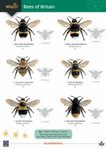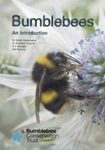![Buzz: Urban Beekeeping and the Power of the Bee Buzz: Urban Beekeeping and the Power of the Bee]()
Click to have a closer look
About this book
Customer reviews
Biography
Related titles
About this book
Bees are essential for human survival – one-third of all food on American dining tables depends on the labor of bees. Beyond pollination, the very idea of the bee is ubiquitous in our culture: we can feel buzzed; we can create buzz; we have worker bees, drones, and Queen bees; we establish collectives and even have communities that share a hive-mind.
In Buzz: Urban Beekeeping and the Power of the Bee, authors Lisa Jean Moore and Mary Kosut convincingly argue that the power of bees goes beyond the food cycle, bees are our mascots, our models, and, unlike any other insect, are both feared and revered. In this fascinating account, Moore and Kosut travel into the land of urban beekeeping in New York City, where raising bees has become all the rage. We follow them as they climb up on rooftops, attend beekeeping workshops and honey festivals, and even put on full-body beekeeping suits and open up the hives.
In the process, we meet a passionate, dedicated, and eclectic group of urban beekeepers who tend to their brood with an emotional and ecological connection that many find restorative and empowering. Kosut and Moore also interview professional beekeepers and many others who tend to their bees for their all-important production of a food staple: honey. The artisanal food shops that are so popular in Brooklyn are a perfect place to sell not just honey, but all manner of goods: soaps, candles, beeswax, beauty products, and even bee pollen.
Buzz: Urban Beekeeping and the Power of the Bee also examines media representations of bees, such as children's books, films, and consumer culture, bringing to light the reciprocal way in which the bee and our idea of the bee inform one another. Partly an ethnographic investigation and partly a meditation on the very nature of human/insect relations, Moore and Kosut argue that how we define, visualize, and interact with bees clearly reflects our changing social and ecological landscape, pointing to how we conceive of and create culture, and how, in essence, we create ourselves.
Customer Reviews
Biography
Lisa Jean Moore is a feminist medical sociologist and Professor of Sociology and Gender Studies at Purchase College, State University of New York. Mary Kosut is Associate Professor of Media, Society and the Arts at Purchase College, State University of New York.
By: Lisa Jean Moore(Author), Mary Kosut(Author)
239 pages, b/w photos, b/w illustrations
"The sociology of urban beekeeping occupies most of this entertaining and enjoyable book. Written by two academic sociologists, it betrays a great deal more about the odd ideological fashions, delusions, and pretensions of its human subjects than it does about bees or beekeeping."
– Anthrozoos
"The text lacks the convoluted writing style that often typifies books by social scientists; it is an interesting and highly readable works that offers an intriguing glimpse into the unique culture of beekeeping, a popular and fast-growing urban phenomenon. Buzz will interest not only general readers, but also students of sociology, natural history/ecology, and entomology, and, of course, anyone with an established or burgeoning passion for beekeeping."
– D.A. Brass, Choice
"In this fascinating blend of sociology, ecology, ethnographic research, and personal memoir, the authors range through all of the aspects of the human relationship with the honeybee."
– Nancy Bent, Booklist
"[A] book valuable in an academic setting."
– Publishers Weekly
"The authors thoughtfully allude to the euphemism, the story of the birds and the bees, to broaden an assumption we share about a bee. They reveal their behavior and the reasons for it, further elucidating their activity in a way that provides a deeper understanding of their nature and yields an even deeper mystery of their existence. The book makes me feel glad that someone out there cares enough about this humble creature to cast them in a light they deserve. Thanks for the Buzz."
– San Francisco Book Review
"Buzz contains some genuinely surprising insights, both in terms of what we learn about the stories we tell ourselves about ourselves through bees and in terms of what we learn about bees' behavior and their adaptation to urban living [...] Buzz helps illustrate what may be the most important sociological warrant for studying animals: they do not merely reflect the stories we tell ourselves about ourselves, they shape society's stories."
– American Journal of Sociology
"Covering everything from the place of honey in artisanal food shops and health-related goods, to cultural and media images, the authors describe how the bee has manifested as a cultural representation of the natural world and how people respond to it [...] readers with a keen desire to understand how bees fit into society and sustainability will find this text on human/insect relations an intriguing read."
– Library Journal
"For almost as long as I have been working in the field of human-animal studies, I have wanted someone to seriously investigate people's relationships with insects. With Buzz, Lisa Jean Moore and Mary Kosut have made a unique, important, and fascinating addition to the literature. Both authors are talented and observant believers in hands-on research. After reading Buzz, you will forever see bees and those who care for them differently."
– Clinton Sanders, author of Regarding Animals
"Buzz is a fascinating reminder of the interconnections between humans and animals, even in that most urban of environments, New York City. Lisa Jean Moore and Mary Kosut properly remind us that this tiny insect, the humble honeybee, carries much cultural baggage – a source of honeyed food and occasionally the vector of death. As we come to recognize the limits and dangers of environmental change, Buzz reminds us that we should remember not only what bees mean to us humans, but how humans shape bee colonies. The accounts of urban beekeepers and the recent growth of tended hives throughout the boroughs emphasize that the diversity of human interests matches the diversity of nature. Ultimately, as Moore and Kosut recognize in this intrepid and lively tour of beedom, nature is cultural."
– Gary Alan Fine, author of Sticky Reputations: The Politics of Collective Memory in Midcentury America

































